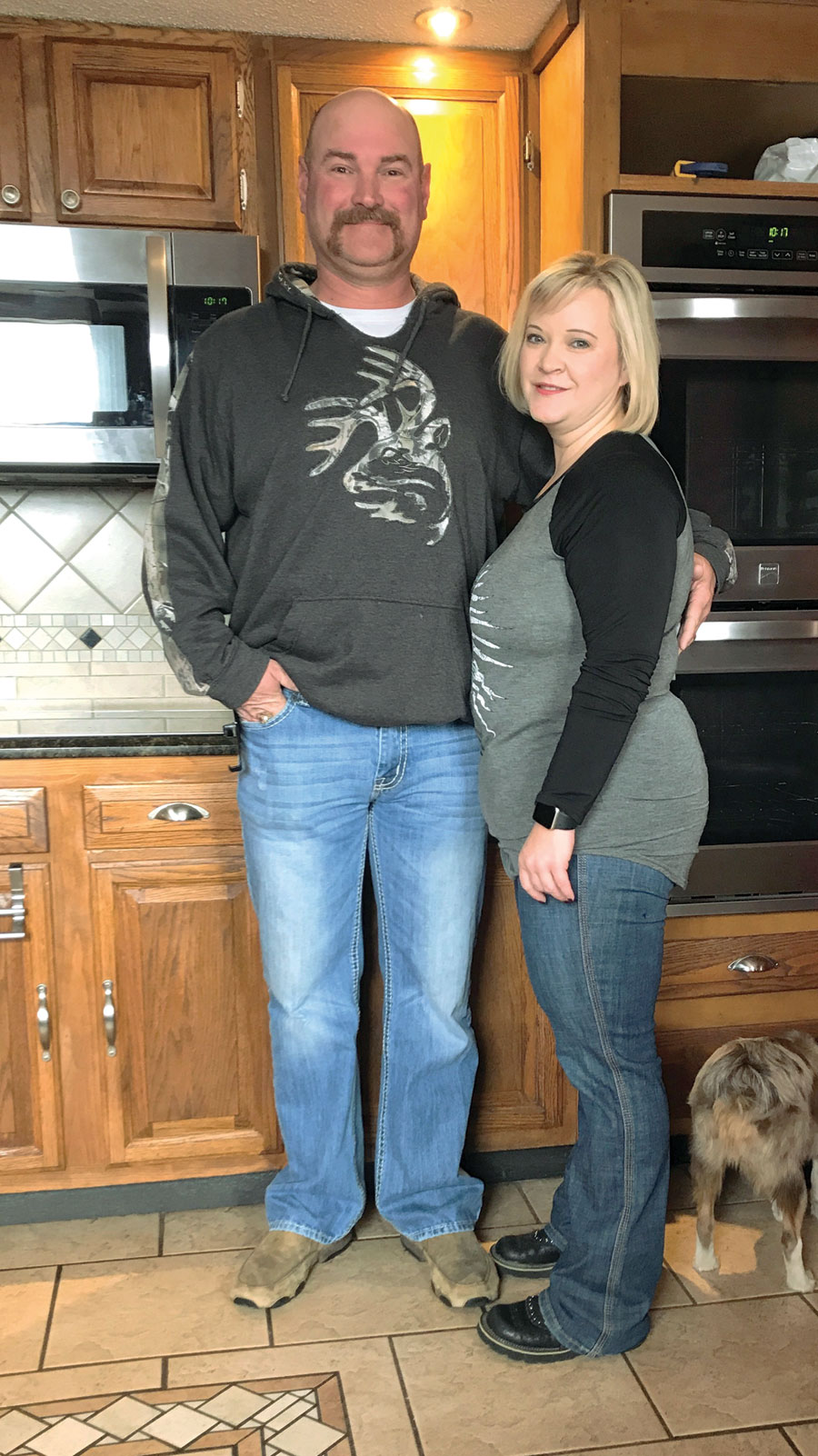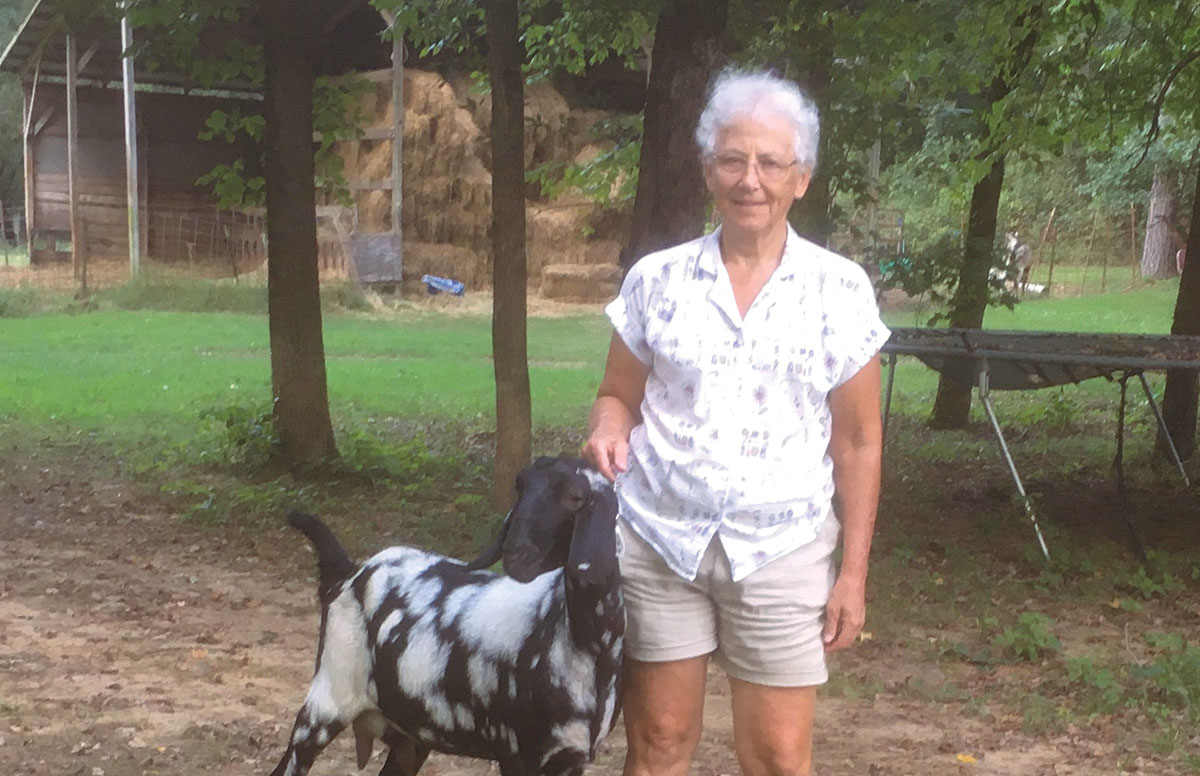 Poor’s Poultry Services works within a 400-miles radius of Cameron, Okla.
Poor’s Poultry Services works within a 400-miles radius of Cameron, Okla.
Not many people can say they have been in a particular industry “pretty much their whole life” but Shannon Poor of Cameron, Okla., and owner of Poor’s Poultry Services can honestly make that statement.
Shannon grew up in rural Oklahoma surrounded by the sights, sounds and, yes, smells of the poultry litter business. But for Shannon and his wife, Tiffany, litter is more than green grass and sunshine, it is a way of life and independence.
Poor’s Poultry Services has been in business for 20 years under the leadership of Shannon, along with Tiffany and his children, Dylan and Abby, making it a family affair.
Often Dylan can be found running the skid steer or driving the spreader. Besides family, Poor’s have two other employees and run two semis for hauling litter and one spreader. They deliver within about a 400-mile radius of home base and as a licensed applicator they can deliver and spread litter in neighboring states.
Even though there was a market down turn a couple years ago, not only affecting the litter business but also many other producers, Shannon remains committed to keeping his vision for the family litter business going.
“I’ve actually downsized my business,” Shannon said. “I should say right sized it.”
Staying on top of expenses is first and foremost in all producer’s and farmer’s minds. For this reason, Poor’s Poultry Services does more than the usual services of total clean outs, de-caking, hauling and spreading. They also offer expert services to producers who may not have the equipment or manpower to do the routine maintenance of litter in their houses, such as: windrowing, litter depth management, specialized flood clean-up and even clean up in mass loss scenario’s.
The Poors purchase their litter from various poultry producers, sometimes driving up to 150 miles. They offer a variety of litter from hen, pullet and even turkey farms. But his number one seller, by far, is broiler litter because of the higher-quality feed regimen broilers receive to increase weight, specifically for breast meat.
Nutrient levels per a wet ton of litter are an excellent option for improved crop growth. For instance, according to an article by John Lory with the Department of Agronomy and Commercial Agriculture Program with the University of Missouri, the average content for a wet ton of broiler litter is 69 pounds of nitrogen, 16 pounds of ammonia nitrogen, 82 pounds phosphate, 38 pounds each for potash and calcium, 16 pounds magnesium, plus lower levels of zinc, iron, copper, sodium, sulfur and manganese.
The article goes on to state that there are several factors affecting litter content, including “bird type, feed composition and efficiency, building management such as cleanout frequency, type of waterers…and the use of litter additives such as alum.”
For these reasons, farmers should have their fields tested to see what nutrients they need and ask about litter tests to prevent over or under fertilizing.
“A pound of manure phosphate or potash has a nutrient value equivalent to that of commercial fertilizer,” Lory said.
The best benefit received when using poultry litter is how long the valuable nutrients actually stay in the soil, barring run-off, one can expect this “green” fertilizer to last longer than one season. The bulky nature of the litter, resulting from different types of bedding a poultry producer uses in their houses, such as straw, rice hulls, sawdust, shavings or even paper, helps maintain a stable top soil.
“The best aspect is its longevity,” Shannon said. “Because it has staying power, you get more bang for our buck.”
Poor’s sells to a wide variety of agricultural producers, such as row crop farmers, sod farmers, ranchers and even pecan orchards.
For those farmers not familiar with using poultry litter and purchase commercial fertilizer, Shannon believes those producers should take that initial step and they might just get hooked. He anticipates that the market will remain steady because of the availability of poultry litter.
Josh Payne, Oklahoma State University animal waste management specialist made this statement regarding litter on The Poultry Site, “I don’t see poultry litter as a waste product but a resource…”
He, like other specialists in the field, agree poultry litter brings more to the field than just basic fertilizer qualities. It is a multi-season option that diminishes the opportunity for erosion, has an assortment of minerals and nutrients, not to mention it increases the soils ability to retain moisture. A quality that many farmers appreciate with past droughts affecting a large portion of Oklahoma and the nation’s mid-section.
For Poor’s Poultry Service, small but determined is their business’ mainstay and keeping the area farmers in the green, in more ways than one is, their main goal.






